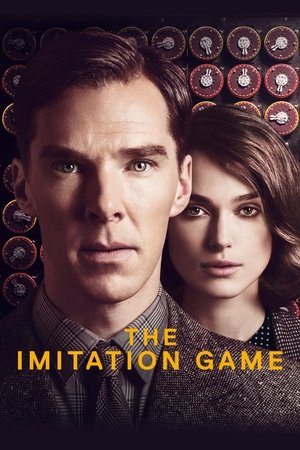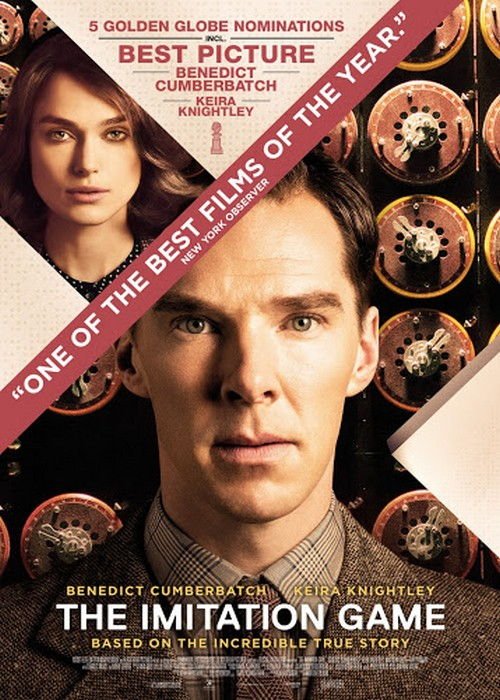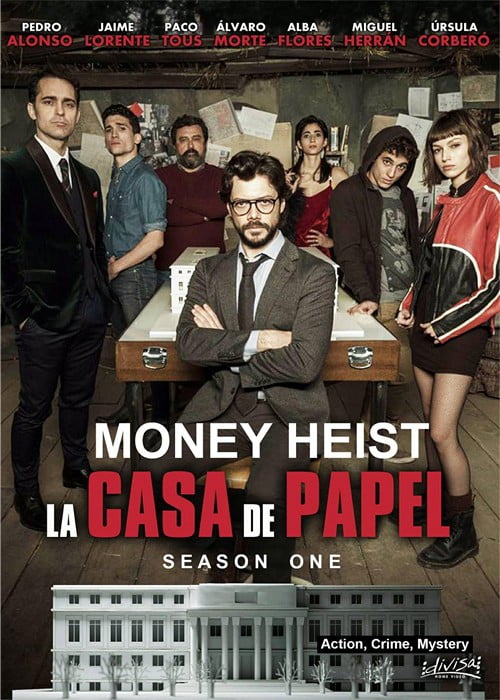The Imitation Game

The Imitation Game
Overview
Based on the real life story of legendary cryptanalyst Alan Turing, the film portrays the nail-biting race against time by Turing and his brilliant team of code-breakers at Britain's top-secret Government Code and Cypher School at Bletchley Park, during the darkest days of World War II.
Trailer
Cast

Benedict Cumberbatch

Keira Knightley

Matthew Goode

Rory Kinnear

Allen Leech

Matthew Beard

Charles Dance

Mark Strong

James Northcote

Tom Goodman-Hill

Steven Waddington
Ilan Goodman
Jack Tarlton

Alex Lawther

Jack Bannon

Tuppence Middleton
Dominik Charman
James G. Nunn
Charlie Manton

David Charkham

Victoria Wicks

Andrew Havill
Laurence Kennedy

Tim van Eyken
Viv Weatherall
Miranda Bell

Tim Steed
Bartosz Wandrykow
Lese Asquith-Coe
Hayley Joanne Bacon
Ingrid Benussi
Nicholas Blatt
Jack Brash
Ancuta Breaban
Alex Corbet Burcher

Grace Calder
Richard Campbell

Daniel Chapple
Lisa Colquhoun
Alexander Cooper
Leigh Dent
Esther Eden
Sam Exley
Ben Farrow
Mike Firth

Hannah Flynn
James Gard
Guna Gultniece
Benjamin Hardie
Oscar Hatton

Luke Hope
Vera Horton
Vincent Idearson
Denis Koroshko

Debra Leigh-Taylor

Stuart Matthews
Amber-Rose May
Samantha Moran
Adam Nowell
Joseph Oliveira
Harry Leonard Parkinson
John Redmann

David G. Robinson
Alice Tapfield
Mark Underwood
Nicola-Jayne Wells
Josh Wichard
Crew
Maria Djurkovic

William Goldenberg
Alexandre Desplat
Sammy Sheldon
Peter Burgis
Nina Gold

Óscar Faura
Albert Carreras
Nick Dent

Morten Tyldum
Graham Moore
Graham Moore

Andy Kennedy
Teddy Schwarzman
Tatiana MacDonald
Lee Walpole
Nicky Ackland-Snow
Nick Thomas
Martin Jensen
Denise Kum

Jack English
Angela Barson
Rebecca Milton
Marco Anton Restivo
Nora Grossman
Ido Ostrowsky
Peter Heslop
Kirsty Whalley

John Midgley
Peter Wignall
Beverly Winston
Dan Green
Marc Gómez del Moral
Steven Hall
Roo Maurice
Amy Riley
Lauren Briggs-Miller
Joe Beal
Stuart Hilliker
Lucy Ainsworth-Taylor
Eran Barnea
Jonathan Collard
Sarah Shepherd
Richard George
Suzie Shearer

Robert Messinger
Play Now The Imitation Game Movie Online
Taglines: Unlock the secret, win the war..
Based on Alan Turing: The Enigma by Andrew Hodges.
During World War II, the English mathematical genius Alan Turing tries to crack the German Enigma code with help from fellow mathematicians.
The plot of the film takes the viewer to the UK in 1939. There is World War II, the British intelligence services are working day and night, but the Germans have the opportunity to exchange information with each other using the Enigma encryption machine.
The government is recruiting Alan Turing – an outstanding talented mathematician, logic and cryptographer with analytical thinking. Alan and his team face an incredibly difficult task – to crack the code of German encryption technology, which only a real genius can do. The difficult relations and friction between the members of the secret government laboratory impede the achievement of the goal, but gradually the situation stabilizes. Turing concludes that only another similar device can handle the Enigma and plunges into work on the decoder.
The mathematician was able to fulfill his great mission, according to analysts, his discovery brought closer the victory over Nazi Germany for 2 years, but brought severe suffering to its creator. Representatives of the government decide to get rid of the scientist that has become unnecessary, he is accused of homosexuality and is tried. In 1954, a man who saved millions of human lives commits suicide.
Creators: Graham Moore
Director: Morten Tyldum
Star Cast: Benedict Cumberbatch, Keira Knightley, Matthew Goode, Rory Kinnear, Charles Dance, Mark Strong
Producer (s): Nora Grossman, Ido Ostrowsky, Teddy Schwarzman
Cinematographer: Óscar Faura
Music: Alexandre Desplat
Production House: Black Bear Pictures, Bristol Automotive, Orange Corp
Original network / Official Sites: The Weinstein Company
Release Year: 25 December 2014 (USA)
Runtime: 114 min
Genres: Biography, Drama, Thriller, War
Country: USA, UK
Language: English, German
In 1951, two policemen, Nock and Staehl, investigate the mathematician Alan Turing after an apparent break-in at his home. During his interrogation by Nock, Turing tells of his time working at Bletchley Park during the Second World War.
In 1928, the young Turing is unhappy and bullied at boarding school. He develops a friendship with Christopher Morcom, who sparks his interest in cryptography. Turing develops romantic feelings for him, but Christopher soon dies from bovine tuberculosis.
When Britain declares war on Germany in 1939, Turing travels to Bletchley Park. Under the direction of Commander Alastair Denniston, he joins the cryptography team of Hugh Alexander, John Cairncross, Peter Hilton, Keith Furman and Charles Richards. The team are trying to analyze the Enigma machine, which the Nazis use to send coded messages.
Turing is difficult to work with, and considers his colleagues inferior; he works alone to design a machine to decipher Enigma messages. After Denniston refuses to fund construction of the machine, Turing writes to Prime Minister Winston Churchill, who puts Turing in charge of the team and funds the machine. Turing fires Furman and Richards and places a difficult crossword in newspapers to find replacements. Joan Clarke, a Cambridge graduate, passes Turing’s test but her parents will not allow her to work with the male cryptographers. Turing arranges for her to live and work with the female clerks who intercept the messages, and shares his plans with her. With Clarke’s help, Turing warms to the other colleagues, who begin to respect him.
Turing’s machine, which he names Christopher, is constructed, but cannot determine the Enigma encryption settings quickly enough; the Germans reset them each day. Denniston orders it to be destroyed and Turing fired, but the other cryptographers threaten to leave if Turing goes. After Clarke plans to leave on the wishes of her parents, Turing proposes marriage, which she accepts. During their reception, Turing confirms his homosexuality to Cairncross, who warns him to keep it secret. After overhearing a conversation with a female clerk about messages she receives, Turing has an epiphany, realising he can program the machine to decode words he already knows exist in certain messages. After he recalibrates the machine, it quickly decodes a message and the cryptographers celebrate. Turing realises they cannot act on every decoded message or the Germans will realise Enigma has been broken.
Turing discovers that Cairncross is a Soviet spy. When Turing confronts him, Cairncross argues that the Soviets are allies working for the same goals, and threatens to retaliate by disclosing Turing’s sexuality. When the MI6 agent Stewart Menzies appears to threaten Clarke, Turing reveals that Cairncross is a spy. Menzies reveals he knew this already and planted the messages Cairncross leaks to the Soviets for British benefit. Fearing for her safety, Turing tells Clarke to leave Bletchley Park, revealing that he is a homosexual. Clarke states she always suspected but insists they would have been happy together anyway. Turing then tells her he never cared for her, and only used her for her cryptography skills. Heartbroken, she decides to stay anyway, deeming this the single most important task she’ll undertake, and she now refuses to cow to what Turing or her parents want her to do, or think of her decisions. After the war, Menzies tells the cryptographers to destroy their work and that they can never see one another again or share what they have done.
In the 1950s, Turing is convicted of gross indecency and, in lieu of a jail sentence, undergoes chemical castration so he can continue his work. Clarke visits him in his home and witnesses his physical and mental deterioration. She comforts him by saying that his work saved millions of lives.
The final scene shows an on screen message saying, “After a year of government-mandated hormonal therapy, Turing committed suicide on June 7th, 1954. He was 41 years old. Between 1885 and 1967, approximately 49,000 homosexual men were convicted of gross indecency under British law. In 2013, Queen Elizabeth II granted Turing a posthumous Royal Pardon, honoring his unprecedented achievements. Historians estimate that breaking Enigma shortened the war by more than two years, saving over 14 million lives. It remained a government-held secret for more than 50 years. Turing’s work inspired generations of research into what scientists called “Turing Machines”. Today, we call them computers.”









